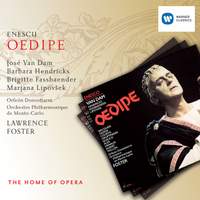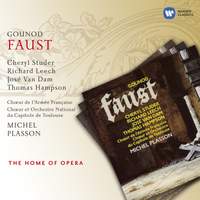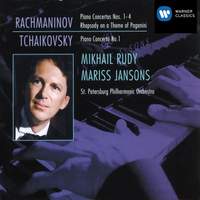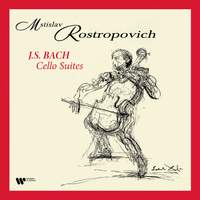Interview,
Alain Lanceron
 One of the most respected and influential figures in the classical recording business, Alain Lanceron was appointed President of Warner Classics and Erato in 2014, shortly after winning Gramophone’s Special Achievement Award in recognition of what editor James Jolly described as his ‘A&R genius and exquisite musical taste’. We met up in London recently to chat about his fifty-year career, from his beginnings in the record industry as a new graduate in Paris to the challenges of adapting to an ever-evolving commercial landscape, as well as discussing a few favourite recordings and artists along the way…
One of the most respected and influential figures in the classical recording business, Alain Lanceron was appointed President of Warner Classics and Erato in 2014, shortly after winning Gramophone’s Special Achievement Award in recognition of what editor James Jolly described as his ‘A&R genius and exquisite musical taste’. We met up in London recently to chat about his fifty-year career, from his beginnings in the record industry as a new graduate in Paris to the challenges of adapting to an ever-evolving commercial landscape, as well as discussing a few favourite recordings and artists along the way…
What attracted you to a career in the recording industry, and how did your early years in the business play out?
I did commercial studies at the École Supérieure de Commerce de Paris, and when I graduated I wanted to do something which would combine my business background with my passion for music, so working for a record company seemed ideal. I’d approached EMI about an internship when I was still a student, and they said ‘No, we don’t take trainees, but we’re interested in you when you finish’, so I applied and they found me a post. They didn’t have anything in Classical, so I started out as a label-manager in the international pop department; I didn’t actually know anything about pop, but I thought it was a good way to be in-house and see what transpired. After a year nothing had come up, so I asked for a meeting with the new general manager, Michel Bonnet, and he created a new post for me – these days you couldn’t do that kind of thing but at that time they could! My new role was ‘responsible for special projects - Attaché á la Direction Générale’, directly linked with general management.
I held that post for five years, then one evening in October 1978 everything changed in a heartbeat: I was working in the Pathé-Marconi factory in Chatou (15 miles outside Paris), and my boss rang and said he needed to speak to me in the Paris office when I got back that evening. A new pope had been announced that week, as John Paul I had died after just a month in office, and I'll never forget my boss's opening words: “Sit down: John Paul I is dead, viva John Paul II!”. In several respects it was a fitting parallel: earlier that year our Director of Classics, a real legend who had been there for 25 years, died of cancer, and his replacement had left after just six months, so I was asked to step into the role. It was an extremely prestigious post and I was only 29 - it was a big challenge for me but also a unique opportunity, so of course I said yes!
What have been the most challenging periods of your career?
From 1979 to the mid-1990s I essentially had a local recording programme on EMI Classics and a few on Virgin Classics, following the acquisition of Virgin music labels by the EMI group. Then a heated argument ensued with my local boss who didn’t want me to make a particular recording and he said ‘You're obviously making this for the international market, so you can go and sell it to the London headquarters’. (It was actually Orphée aux Enfers with Marc Minkowski and Natalie Dessay, which really had international appeal and went on to become a very significant recording on several levels). I called my English boss Richard Lyttelton, explained that my French boss didn’t want to give me the green light, and asked him if it was of interest; he agreed to take it on condition that he could also take on all my other local recordings, so overnight I ended up with an entirely international programme and decided to concentrate my recording activities on Virgin Classics, a label I was appointed President of in 1996.
Fast-forwarding to the twenty-first century, the final years of EMI were extremely difficult because the company was on sale and we had to present the best possible 'bride for the marriage' in terms of sales-figures - but I've always felt so fortunate in being surrounded by colleagues who truly love and believe in classical music, especially when I look at how things have played out with some of our competitors. We're still living through an era of turbulence (the transitionary period towards streaming was supposed to last for three or four years, and now it’s been almost a decade), but my policy is that when you encounter turbulence you have to stick to fundamentals. For me, those fundamentals are signing and developing new artists and maximising the legacy of our predecessors through the back catalogue at our disposal. And that applies whatever the configuration is – whether it's LPs, CDs, digital or streaming, we have to do the best by this catalogue because we have a duty to the great artists of the past who created these treasures.
How does signing new artists work on a practical level and what do you look for?
It’s a difficult question to answer, because in our business it really it comes down to a sixth sense – it’s so hard to define, but you can truly feel when an artist has potential and you bet on that. The question should never be ‘Why not sign an artist?’ but ‘Why?’. You have to have a sound reason: perhaps they fill a gap in your catalogue, either as an artist or a genre, or perhaps they have a big home market, but in any case they must have something which makes them unique. That’s more important than ever these days, because we have fewer and fewer international artists who are selling in all countries: increasingly they are linked to one market, though of course our duty and target is to develop them further afield too. I am not a specialist in stealing artists from the competition, because I hate that when they do that to me! What I like is to sign an artist at the very beginning of their career, and my greatest reward is when I see that artist climbing the last steps. I love the feeling of having served our artists and helped them to become stars, and I thank god that that’s happened many times for me – with Michel Plasson, Barbara Hendricks, Natalie Dessay, Emmanuelle Haïm, Philippe Jaroussky, Piotr Anderszewski, Renaud and Gautier Capuçon, to name but a few.
Jakub Józef Orliński is one of my most successful new artists, and I’m very proud to have signed him because he has the full package – he has an incredible voice, he’s supremely musical, and he’s truly an artist for the twenty-first century because he’s also very good with social media and has a fantastic image. I’ve been working with him for three years now and I am constantly impressed at how extremely bright, organised and articulate he is.
One of the most important decisions, of course, is what to record for a first album: either you do something which has been recorded many times already and is difficult to sell because you’re up against a lot of competition, or you go for niche repertoire which is also difficult to sell because it’s obscure. Our job is to find a compromise and come up with something that has a unique identity, but which also fits within the wider identity of the brand. Obviously you can’t conquer every market and you cannot be present in all areas of classical music, but what is important is to have an identity as a label, and I hope that’s true of both Warner Classics and Erato. The way I like to work is to sketch lines and then etch them deeper with each project, so that everything develops in the same direction.
Can I pin you down to three or four favourite recordings from your career?
In terms of opera, one recording that means a lot to me is Enescu’s Œdipe: the idea for that came from the conductor Lawrence Foster, whose wife is Romanian. It's an opera which was premiered in 1936 with the crème de la crème of French singers, and then there was a radio recording made in Paris in the 1950s, but we felt it deserved a modern studio recording. I initially wanted José van Dam for the title-role, but as he wasn’t free for the projected recording-dates in 1987, I chose Samuel Ramey instead. But six months before the recording Sam said he wanted to withdraw: the role involves a lot of Sprechstimme, and after working with it for a while he simply felt that it wasn’t for him. Lawrence was keen to proceed as soon as possible; he'd found a Romanian bass-baritone who was interested and available, and I agreed that we’d audition him in Paris. But one of my golden rules is that one should only make a recording under the best possible conditions, and if all the stars don’t align then you simply have to pass: for this project in particular I felt a huge responsibility to introduce this almost entirely unknown piece to an international audience, and in all honesty the singer simply wasn’t on that level.
So I called up José again and asked him when he was free, and he said the summer of 1989! Larry felt that that was too long to wait, but I said to him ‘In ten years nobody will remember that we postponed the recording!’. So we rescheduled for 1989, and while some of the artists were no longer available (including Marilyn Horne, who I originally wanted for the Sphinx) we assembled a great cast including Barbara Hendricks, Marjana Lipovšek, Brigitte Fassbaender, Gabriel Bacquier and Nicolai Gedda. I’m very proud to have stuck to my guns about the title-role; the work is now regularly performed, and I hope our recording played its part in that.
Barbara Hendricks (Antigone), Brigitte Fassbaender (Jocasta), Nicolai Gedda (Shepherd), José Van Dam (Oedipus), Gabriel Bacquier (Tiresias), Laurence Albert (Phorbas), Marcel Vanaud (Creon), Gino Quilico (Theseus), Jean-Philippe Courtis (Watchman), Marjana Lipovsek (The Sphinx), Jocelynne Taillon (Merope), John Aler (Laius), Cornelius Hauptmann (High Priest)
Orchestre Philharmonique de Monte-Carlo, Orféon Donostiarra, Lawrence Foster
Available Formats: 2 CDs, MP3, FLAC
I worked a lot with Michel Plasson when I was still very young and from the beginning we decided to concentrate on the French repertoire – both on extremely well-known works such as Carmen and Faust, and world premiere recordings of things like Magnard’s symphonies and Guercoeur, Roussel’s Evocations and Padmâvatî, and Ravel's Rome cantatas. One of my favourites from that period was our Faust with Richard Leech, Cheryl Studer, Thomas Hampson and José van Dam (the singer with whom I made the most recordings), which featured a lot of music that was totally unknown at the time, including an alternative aria for ‘Le veau d’or’, a duet between Marguerite and Valentin, and a trio between Faust, Siebel and Wagner.
Cheryl Studer (Marguerite), José van Dam (Méphistophélès), Thomas Hampson (Valentin), Martine Mahé (Siébel), Nadine Denize (Marthe), Marc Barrard (Wagner)
Orchestre du Capitole de Toulouse, Choeur de l'Armée Française, Choeur du Capitole de Toulouse
Available Formats: MP3, FLAC
I also made a great many recordings with the pianist Mikhail Rudy, a Russian dissident who had settled in the West, and one day he came to me and said ‘I would like to record Tchaikovsky’s First and Rachmaninov’s Second Piano Concertos...in Leningrad!’. It was the first time a Western company had recorded in Russia, and I explained that I didn’t have any contacts there, but Mikhail said ‘I’ll take care of everything - you have just to sign the contract!’. (To be honest I didn’t know even know what I was signing as the contract was all in Russian, so it was a case of trusting the small print 100%!). We asked Mariss Janssons to conduct, and even though it was still difficult to get to Leningrad in 1990 we made the recording. When the city became Saint Petersburg the following year, we went back and recorded the rest of the Rachmaninov concertos; it was one of those projects when making music becomes part of history, and a very special experience.
Mikhail Rudy (piano), Leningrad Philharmonic, St Petersburg Philharmonic, Mariss Jansons
Available Formats: MP3, FLAC
Yehudi Menuhin was like an angel to me throughout my career, and there was a kind of timelessness about him that made him seem almost immortal. A month-and-a-half before he died we recorded the piano transcription of the Beethoven Violin Concerto with him conducting; he'd recorded the work maybe ten times as soloist, so for him to conduct this version (with Sinfonia Varsovia and François-René Duchâble) was very special. He was such a great artist, and the same is true of Mstislav Rostropovich. I didn’t know Slava quite so well, but one day I heard he was recording the Bach Cello Suites just for himself: he wanted to have the option of destroying it if he was dissatisfied with it. I approached him and explained that I wanted to release the recording if he turned out to be happy with it, and asked if I could send him a marketing plan. I worked on it for weeks, and he liked it, so it happened and we became good friends; he invited me to Moscow for his and Galina's fiftieth wedding-anniversary celebrations, which was a moment of pure joy. The following year he invited me to his eightieth birthday, which was a nightmarish occasion because he was so ill that he seemed barely alive: everybody wanted to shake his hand, but he was so fragile that I honestly didn't dare. Instead, he simply moved his hand to say farewell, and a month later he was dead.
Mstislav Rostropovich (cello)
Available Formats: MP3, FLAC






